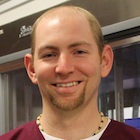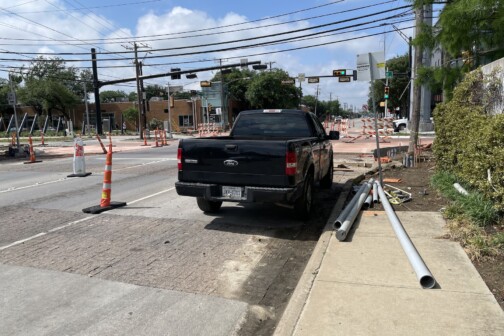
Eric Horne, a pharmacist at Texas Health Harris Methodist Hospital Fort Worth, said some patients are surprised to see him when they come to the emergency department (ED).
“I get an array of responses. Some are surprised. Others see the white coat and figure I’m just a doctor,” Horne said.
Horne works as part of ED care team to attempt to sort out what medications patients are taking. He said each patient could take as long as 30-40 minutes to get an accurate record, and he enters that data into the computer. Most ED physicians rely on the patients’ drug lists when making a diagnosis and order tests and medications.
Horne also makes recommendations based whether the drug mix contains potentially negative interactions, inaccurate doses or same drug under different names.

Randy Ball, the hospital’s director of pharmacy, said the ED treats people with complex conditions who sometimes need as many as two dozen medicines.
“Patients see multiple physicians. Often there is no single physician who knows what’s going on with that patient. The No. 1 error is medications listed on a home medication list that they are no longer taking. Or they are taking new medications that are not on the list (for returning patients). This has improved patient safety because physicians are not making treatment decisions based on an incorrect (pharmaceutical) list,” he said.
Horne said he is able to complete an accurate list for about 50 percent of the ED patients. The ED can admit as many as 90 patients a day. Time and patient volume get in the way of not completing a higher percentage.
“Sometimes we have to call the patient’s pharmacy and doctor’s office to gather information. We might spend 30 minutes doing that and still not complete the list,” he said.
Adverse drug events (ADEs) result in higher costs of care and longer hospitalizations. Of the hospitals who have conducted ADEs studies, the incident rate ranged from 2 per 100 admissions to 7 per 100 admissions. The likelihood increases if the patient’s length of hospital stay and the number of required medications.
An ADE specifically is harm caused by the use of a drug. The term is often confused with “adverse event,” which occurs in a medicated patient but is not cause by the drug, and “adverse drug reaction,” which is a severe, unpredictable reaction to a properly administered medication. A “side effect” generally is predictable and usually inconsequential.
Medication errors can occur at any point in the pharmaceutical-care process – physician order, prescription transcription, dispensing or administration. Computerized medication order entry has the potential of eliminating an estimated 84 percent of dose, frequency and routing errors, according to the U.S. Agency for Healthcare Research and Quality.
Having a pharmacist in the ED has had an impact elsewhere.
In a Virginia pilot study, only 48 discrepancies in medications were found after a pharmacy team interviewed patients, compared with 1,547 missed by the admission nursing staff. There were more than nine discrepancies per patient before the pharmacists intervened. Afterward, there were only .2 discrepancies per patient.
In a sample of 98 ED visits, the accuracy of medication lists completed by triage nurses was about 43 percent.
Such statistics do not surprise Ball.
“The nurse is juggling a dozen other things and doesn’t have time (to work on drug lists),” he said.
Ball declined to supply data on the effect of having a pharmacist in the ED at his hospital but he said THR plans to publish those outcomes in the near future. He said research has shown patients have shorter hospital stays and better outcomes when the ED pharmacist is involved.
Even though the program requires additional hospital resources, Ball said there may be a business case for the expense because of the lower cost of overall care. Texas Health Harris Methodist Hospital Southwest Fort Worth has begun to placing a pharmacist in the ED and Texas Health Presbyterian Hospital Denton is exploring a similar program.
“I think it’s one of the programs that has had significant impact on patient outcomes,” Ball said.
Steve Jacob is editor of D Healthcare Daily and author of the new book Health Care in 2020: Where Uncertain Reform, Bad Habits, Too Few Doctors and Skyrocketing Costs Are Taking Us. He can be reached at [email protected].





